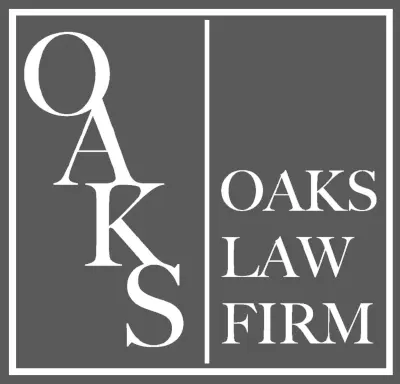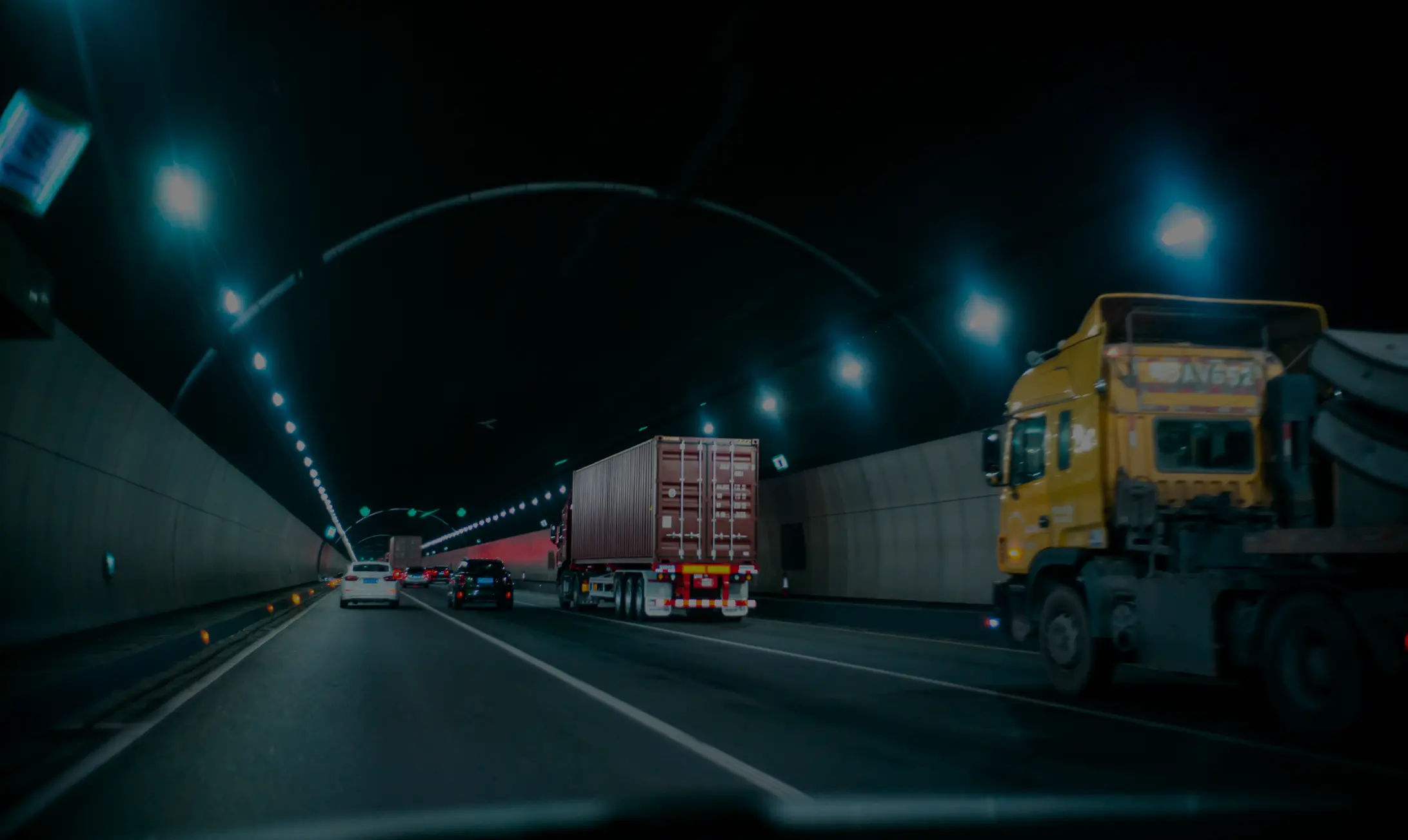
Truck Accident Attorneys
Schedule a Free Consultation With a Top Los Angeles Semi-Truck Accident Lawyer
Los Angeles sees more than its fair share of commercial trucks. These massive vehicles are all over our roads. According to the Department of Transportation (DOT), The volume of commercial vehicles transporting goods within California and on the highways presents a huge problem for other motorists who share the roads with semi-trucks and/or 18-wheelers.
Passengers in cars traveling on the same roads as these massive trucks are especially vulnerable to catastrophic injuries in truck accidents in Los Angeles, CA. Data from the Insurance Institute for Highway Safety showed that passenger vehicle occupants were far more likely to die in accidents with large trucks than the occupants of those trucks.
At Oaks Law Firm, our Los Angeles truck accident attorneys fight tirelessly to protect the rights of injured victims and their families. We have what it takes to hold negligent trucking companies and large commercial insurance companies accountable. Hurt in a crash? Contact us at our Los Angeles law office for a free, no obligation with a top-tier California semi-truck accident lawyer.
What to Do After a Commercial Truck Accident in Los Angeles, California
What to Do After a Commercial Truck Accident in Los Angeles, California
Were you involved in a tractor-trailer accident in Los Angeles? As these are often serious collisions, the accident scene can be downright chaotic. You cannot rely on the trucking company or any insurance company to look out for your best interests. Knowing what to do can make all of the difference. Here are four steps to take after an eighteen-wheeler crash in Los Angeles:
- Stop Your Vehicle and Report the Collision: First and foremost, you should never leave the scene of an accident. If possible, safely pull over to the side of the road away from traffic. With an exception for medical emergencies, remain at the scene, exchange information, and report the crash. You should call the Los Angeles Police Department (LAPD) or another state or local law enforcement agency.
- Get Medical Care (Emergencies Take Priority): Medical needs come first. Your health is the top priority. If you are injured in a semi-truck accident, make sure that you get prompt medical care. Not all truck accident injuries are immediately noticeable. Shock, adrenaline, and delayed onset can conceal injuries for hours, days, or even longer. In California, you need medical records to support a truck accident injury claim.
- Thoroughly Document the Truck Accident: Gather as much information about the semi-truck accident as you can. Use your phone to take pictures of the vehicle damage and the surrounding area. If there are witnesses, politely ask for their contact information. Note down the truck’s license plate, the company name, and any details that seem relevant. Be sure to also get a copy of the police report once it becomes available.
- Consult With a Los Angeles Attorney: Before you agree to give a recorded statement to the trucking company’s insurance adjuster, be sure to consult with a top-tier Los Angeles attorney. Insurance companies are not on your side. They want to find a way that they can pay out less—maybe even deny your claim outright. Your Los Angeles tractor-trailer accident lawyer can protect your rights and your financial interests.
Semi-Truck Accidents Can Cause Devastating Injuries
A fully loaded tractor-trailer in Los Angeles County can weigh a maximum of 80,000 pounds. That is dozens of times larger than the size of your ordinary passenger car. As a consequence, semi-truck accidents in Los Angeles are far more likely to result in devastating, life-altering injuries. No injuries or too serious for our law firm. Some of the most common types of injuries reported in tractor-trailer crashes in Southern California include:
- Sprains and Strains: A sprain or a strain can take a long time to heal after a trucking accident. You can bring a claim for a muscle tear, torn ligament, or other similar injury.
- Soft Tissue Damage: Trucking accidents can cause devastating soft tissue damage. Whiplash is one of the most common examples of truck accident injuries.
- Traumatic Brain Injuries (TBIs): These occur from a severe blow to the head, leading to lasting brain damage that can affect memory, cognitive function, and much more
- Spinal Cord Injuries: The immense force of a truck collision can damage the spine, potentially resulting in partial or complete paralysis. Spinal cord injuries are emergencies.
- Broken Bones: The impact of a large truck can easily break bones. In some cases, truck crashes can lead to complex fractures that require surgery.
- Internal Injuries: Organs can be damaged or ruptured from the force of the accident, leading to internal bleeding and requiring immediate emergency medical care.
- Amputations: Unfortunately, in some cases, a truck accident can lead to such a catastrophic injury that a person may need to have a limb amputated.
California’s Approach To Trucking
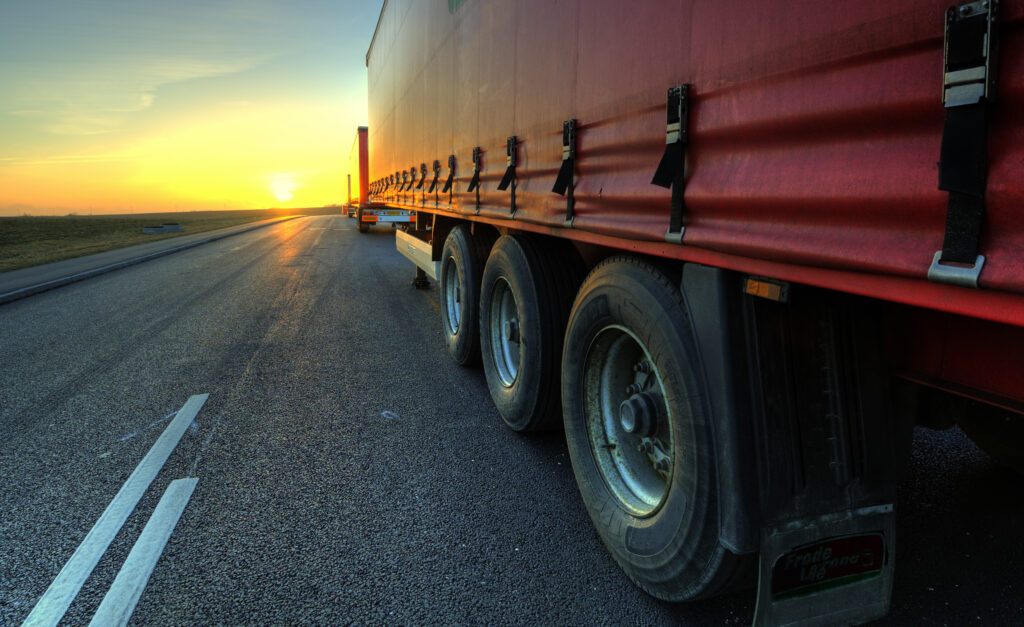
Due to California’s heavy trade and a large number of commercial trucks moving large cargo within the highways, California is home to a huge number of the nation’s fatal commercial tractor-trailer accidents. Unfortunately, a large number of these accidents are due to many California truck companies prioritizing profits over safety.
As such, although you must be aware of and be extremely careful driving next to these “big rigs”, however, regardless of how careful you are, you may not be able to avoid a collision with one of these 18-wheelers or semi-trucks. Some of these truck drivers have been driving for long hours, are tired, are not fully trained drivers, or are driving trucks without proper overall maintenance. This is where California truck companies are held liable for injuries and fatalities caused by their drivers.
In recent years, California has been the second most dangerous state to drive in, with approximately an average of 3,000 fatal traffic accidents in a given year alone. California is home to a very large market for freight movement, which consists of large commercial big rigs traveling the roads and highways, to transport goods.
What Causes Commercial Truck Accidents in Los Angeles?
Large trucks pose many hazards as they travel on the roads and highways in Los Angeles. Due to the weight and size of a large truck, it will take significantly longer to stop than a passenger vehicle. This has led to many catastrophic rear-end California truck accidents and crashes, especially if the commercial truck is speeding, not paying attention to the road (texting or on the phone), or “tailgating.”
Large trucks also have substantial blind spots called “no-zones” located to the rear, sides, and front of the truck, where the driver is unaware of a car traveling next to it. Some of the common causes of Truck Accidents in Los Angeles and throughout California:
- Department of Transporation (DOT) clearance issues
- Unrealistic schedules
- Improper training
- Negligent Supervision
- Unlicensed Driver
- Reckless Driving and Speeding (combined with heavy cargo)
- Improper Turning movements
- Disobeying safety procedures
- Driving while impaired or intoxicated (DWI)
- Parking on the shoulder
- Motor Vehicle inspection failure
- Maintenance failure
- Repair failure
- Violating other Commercial Vehicle Laws
- Driving fatigue
- Moving in reverse
- Mechanical defect
- Brake failure
- Tire tread/tire blow-up
- Stopping at railroad-grade crossings
- Transportation equipment with trailers
- Overloading/improper loading of cargo (this can cause semis to roll over or jackknife)
- Loads that shift weight
Another cause of fatal truck accidents in Los Angeles is driver fatigue. Although there are legal limits related to the number of hours a commercial truck driver may drive without rest (i.e., no more than 60 hours in seven consecutive days), some drivers feel pressure from their employers to move cargo under deadlines.
California is an At-Fault, Comparative Negligence State for Truck Accidents
How does liability work for commercial trucking crashes in California? The state follows an at-fault (tort) system. The party responsible for causing the accident is also responsible for paying for the damages. After a truck accident in Los Angeles, determining who was at fault is a crucial first step. Every semi-truck accident in Southern California should be thoroughly investigated. A top Los Angeles tractor-trailer accident lawyer can help you secure the evidence you need to establish fault.
Notably, California also follows a “comparative negligence” rule. If you are partially responsible for the accident, your compensation can be reduced by your percentage of fault. For example, if you’re found to be 20 percent at fault for a truck accident due to speeding, you would be liable for 20 percent of your own damages. If you suffered $50,000 in total losses in this type of crash, you would be legally responsible for $10,000 of your own damages.
Who Is Responsible For Truck Accidents In Los Angeles?
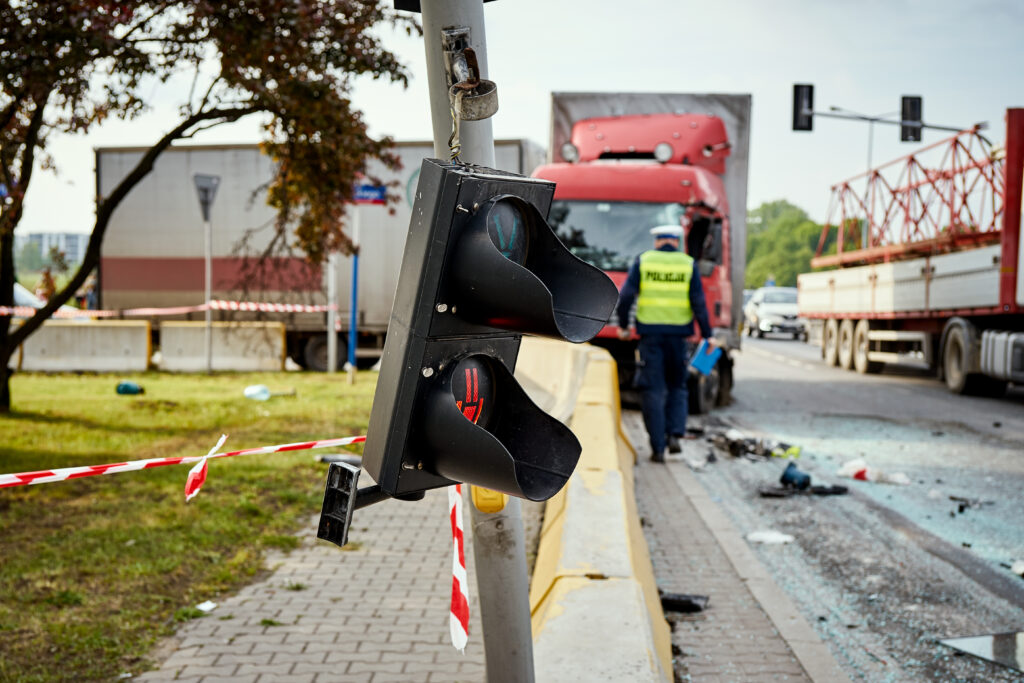
For truck accident victims in Los Angeles, the questions of who is responsible and who actually caused the accident are generally complicated, irrespective of what one believes to be at fault. There are many individuals and/or entities involved, from the driver to the owner of the truck and/or company that owns the truck, and getting information about what went wrong often requires some industry know-how.
Knowing the common reasons for trucking accidents, and the relationships among the persons and entities connected to the truck, the trailer, and the load, will help one determine whether you have a viable claim and how you will need to proceed with truck accident claims.
Statistics show that over the past 20 years, truck accidents have increased by over 20%. According to the Federal Motor Carrier Safety Administration (FMCSA) (Federal Laws govern the trucking industry along with some State regulations), over 4,000 individuals have died and over 100,000 people have sustained injuries in crashes that involved semi-trucks, annually. Although these figures are different year by year, it goes to show you that the injuries and fatalities in truck accidents are real and alarming. Based on how heavy and large these trucks are, the injuries are usually catastrophic or fatal.
An Overview of Parties That May Be Liable for Your Truck Accident
One of the many things that makes tractor-trailer accident cases complicated is that a large number of different parties are involved in commercial truck operations. When it comes to truck accident cases, there may be a lot of players who can be held responsible for one’s injuries, including but not limited to:
- The truck’s driver him or herself.
- The owner of the truck or trailer.
- The person or company that leased the truck or trailer from the owner.
- The manufacturer of the vehicle, tires, or other parts that may have contributed to the cause or severity of the accident.
- The shipper or loader of the truck’s cargo (in truck accident cases involving improper loading).
- The company and/or employer of the truck driver and on…
For example, the truck company might claim that the accident was caused by defective tires. In turn, the tire manufacturer might then point the finger at the leasing company or owner/operator, claiming that it failed to maintain the brakes in good working order.
Understanding the Negligence
In California, responsibility for a trucking accident is based on the legal principle of negligence. Broadly explained, negligence is defined as the failure to take the proper safety precautions. It can come in many different forms in a semi-truck accident case in Los Angeles. In order to prove a defendant was negligent, the plaintiff must show three things:
- The defendant owed the plaintiff some duty of care under the law.
- The defendant breached that duty of care through some action or omission.
- The defendant’s breach was a substantial factor in causing some form of injury to the plaintiff.
A truck driver’s duty of care includes a responsibility to obey all applicable traffic laws. Similarly, truck drivers and truck owners have a duty to follow all federal regulations governing motor carriers who transport goods across state lines. Manufacturers of commercial semi-trucks and their component parts have a duty of care to design and manufacture their products in a manner that is safe for their intended use.
We Help Truck Accident Victims in Los Angeles Secure the Maximum Financial Compensation
An eighteen-wheeler accident can leave a person with severe injuries and extraordinary damages. The road to recovery can be long and daunting. California law allows injured victims to seek financial compensation for economic losses and non-economic damages. However, it can be very hard for truck accident victims to get the full and fair financial compensation that they deserve. Insurance companies fight aggressively to pay out as little as possible. Our Los Angeles, CA truck accident lawyers help victims secure financial compensation for:
- Vehicle repairs or vehicle replacement.
- Emergency medical treatment.
- Hospital bills and other medical costs.
- Ongoing and long-term medical expenses.
- Loss of income, including diminished earnings.
- Pain and suffering & emotional distress.
- Long-term disability or physical impairment.
- Wrongful death of a family member.
You Have a Limited Amount of Time to Bring a Truck Accident Claim in California
In California, there is a strict timeline for filing a truck accident injury claim. Broadly speaking, this is known as the statute of limitations. You have two years from the date of the accident to file a personal injury lawsuit. However, if you are claiming property damage only, the time limit in California is three years. Missing this deadline can mean losing your right to seek compensation altogether. Do not fall behind the truck company or its insurer in the claims process. Be proactive: Consult with a skilled Los Angeles tractor-trailer accident lawyer as soon as possible.
Can Trucking Companies Avoid Liability?
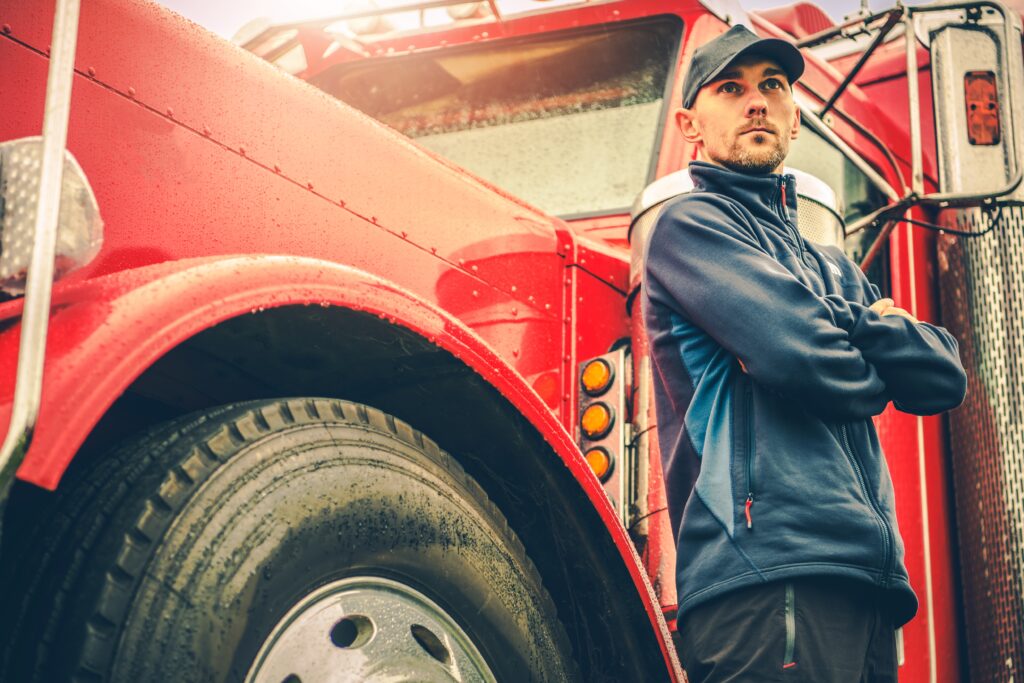
They used to be able to but it’s much more difficult for them to escape liability nowadays. One will still need to know a lot about how to hold them responsible. Current federal laws and regulations have put an end to the games trucking companies tried to play in escaping responsibility by claiming the driver was an independent contractor or that they did not own or operate the truck, trailer, etc.
Under current federal law, any company owning a trucking permit is responsible for all accidents involving a truck that has its placard or name displayed on the vehicle. It doesn’t matter what the lease says with the owner/operator or whether the driver is an employee or an independent contractor.
Always pick up the phone and seek a free consultation from an experienced Los Angeles truck accident lawyer before giving any statements and/or signing any documents with the other party(s) or anyone for that matter.
Can I Be Blamed for a Trucking Accident?
A common legal tactic that truck drivers, truck companies, and other defendants in Los Angeles truck accident lawsuits will employ is to try to shift blame to the victim. For example, they may argue that the injured driver caused or contributed to the accident through their own violations of the traffic laws or otherwise acted in a reckless or unsafe manner. Such tactics are employed precisely because of California’s comparative fault rules governing personal injury claims.
Understanding Comparative Fault in a Truck Accident Case in Los Angeles
Comparative fault simply refers to a legal rule that a court must divide up fault between all parties involved in a given accident. This includes the possible fault of the person filing the lawsuit. If a truck accident claim proceeds to a jury trial, it is generally left to the jury to decide how fault should be apportioned. Alternatively, if the parties elect to try the case without a jury, this decision will be left up to the judge instead.
The Burden of Proof
It’s important to keep in mind that if the defendant asserts comparative fault, then they have the burden of proving the plaintiff’s negligence and that the plaintiff’s negligence was a substantial factor in causing the accident. Additionally, it is also possible to argue that a third party was partially at fault. For instance, a trucking company might argue that the manufacturer of a defective part should share some of the responsibility.
The Impact on Compensation For Your Truck Accident Claim
Ultimately, when a judge or jury apportions fault, the plaintiff’s ability to recover damages from the defendant may be reduced based on their share of the blame. For example, if a jury decides that a truck driver was 80 percent at fault for an accident and the plaintiff was 20 percent at fault, then the plaintiff’s total monetary damages for the accident would be reduced by 20 percent, meaning the truck driver would only pay 80 percent.
California’s Pure Comparative Fault System
California follows a “pure” form of comparative fault. This means that truck accident victims can still recover some amount of damages from a negligent defendant regardless of their own share of the responsibility for a trucking accident. So in theory, you could be 99 percent at fault, but the negligent defendant would still have to pay for 1 percent of your damages.
Navigating comparative fault and defending against attempts to shift blame requires a skilled and experienced legal team. The unfortunate reality is that the trucking company and/or its insurance carrier may try to pin fault on you after a serious crash to reduce the amount that they have to pay out. It is imperative that you are prepared for this defense strategy. A skilled Los Angeles semi-truck accident attorney can help you deal with issues related to comparative negligence.
Why Rely On Oaks Law Firm for a Los Angeles Truck Accident Injury Claims
Truck accident claims are among the most complex, contentious types of personal injury cases. If you have a ton of questions about the claims process, you are certainly not alone. At Oaks Law Firm, we are devoted to putting our clients’ needs first. When you contact us at our Los Angeles law office, you will have a chance to work directly with a California truck accident lawyer who can:
- Hear what you have to say and answer questions about your rights.
- Investigate the truck accident—gathering the evidence needed to prove fault.
- Connect with the right doctors, organize your medical records, and prove your damages.
- Handle the legal paperwork and any settlement negotiations with insurance adjusters.
- Take forceful legal action to help you maximize your truck accident injury compensation.
We Represent Truck Accident Victims in Los Angeles On a Contingency Fee Basis
You do not need to worry about the cost of hiring an attorney after a commercial truck accident in Los Angeles. At Oaks Law Firm, we put injured victims first. Our firm handles tractor-trailer accident cases on a contingency fee basis. You will pay any upfront fees or hourly costs for our services. Instead, our payment is a percentage of the compensation we secure for you. If we do not win your case, we do not get paid.
Contact A Los Angeles Truck Accident Lawyer Now For Help!
If you’ve been involved in a trucking accident in Los Angeles, seeking the counsel of an experienced truck accident attorney at Oaks Law Firm can protect your rights and ensure you receive the compensation you deserve. Our Los Angeles truck accident lawyer is here to fight for you and ensure that your rights are fully protected. Contact us today for a free consultation and let us help you build a strong case for your trucking accident claim in Los Angeles. We fight for the rights and interests of truck accident victims throughout all of Southern California.
CALL TODAY! (877) 539-5366
Recovering the Damages You Deserve
If someone else is to blame for your injuries, you have the right to seek compensation for the full amount of damages you've suffered. These damages can include medical expenses, lost wages, property damage, as well as pain and suffering. You must bring forth your claim within one year of the accident date. Not filing your case within one year will bar you from recovery.
PRACTICE AREAS
RECENTNEWS
Tips For Driving In The Rain
Driving in conditions that involve strong or heavy wind and rain may not seem like the most pressing safety concern… Continue reading Tips For Driving In The Rain
